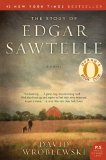Book Club Discussion Questions
In a book club? Subscribe to our Book Club Newsletter!
For supplemental discussion material see our Beyond the Book article, Dog Training Methods & The Seeing Eye and our BookBrowse Review of The Story of Edgar Sawtelle.
Please be aware that this discussion guide will contain spoilers!
- How would Edgar's story have been different if he had been born with a
voice? How would Edgar himself have been different? Since Edgar can
communicate perfectly well in sign most of the time, why should having a
voice make any difference at all?
- At one point in this story, Trudy tells Edgar that what makes the
Sawtelle dogs valuable is something that cannot be put into words, at least
by her. By the end of the story, Edgar feels he understands what she meant,
though he is equally at a loss to name this quality. What do you think Trudy
meant?
- How does Almondine's way of seeing the world differ from the human
characters in this story? Does Essay's perception (which we can only infer)
differ from Almondine's? Assuming that both dogs are examples of what John
Sawtelle dubbed canis posterus, "the next dogs", what specifically
can they do that other dogs cannot?
- In what ways have dog training techniques changed in the last few
decades? Do Edgar's own methods change over the course of the story? If so,
why? Do different methods of dog training represent a trade-off of some
kind, or are certain methods simply better? Would it be more or less
difficult to train a breed of dogs that had been selected for many
generations for their intellect?
- Haunting is a prominent motif in The Story of Edgar Sawtelle.
How many ghosts, both literal and figurative, are in this story? In what
ways are the ghosts alike? Who is haunted, and by whom?
- One of the abiding mysteries in Edgar's life concerns how his parents
met. In fact, Edgar is an inveterate snoop about it. Yet when Trudy finally
offers to tell him, he decides he'd rather not know. What does that reveal
about Edgar's character or his state of mind? Do you think he might he have
made a different decision earlier in the story?
- At first glance, Henry Lamb seems an unlikely caretaker for a pair of
Sawtelle dogs, yet Edgar feels that Tinder and Baboo will be safe with him.
What is it about Henry that makes him fit? Would it have been better if
Edgar had placed the dogs with someone more experienced? Why doesn't Edgar
simply insist that all the dogs return home with him?
- Claude is a mysterious presence in this story. What does he want and
when did he start wanting it? What is his modus operandi? Would his
methods work in the real world, or is such behavior merely a convenient
trope of fiction? Two of the final chapters are told from Claude's point of
view. Do they help explain his character or motivation?
- In one of Edgar's favorite passages from The Jungle Book,
Bagheera tells Mowgli that he was once a caged animal, until "one night I
felt that I was Bagheera - the Panther - and no man's plaything, and I broke
the silly lock with one blow of my paw and came away." There is a dialectic
in Edgar's story that is similarly concerned with the ideas of wildness and
domestication. How does this manifest itself? What is the "wildest" element
in the story? What is the most "domestic"?
- Mark Doty has called The Story of Edgar Sawtelle "an American
Hamlet." Certainly, there are moments that evoke that older drama, but many
other significant story elements do not. Edgar's encounter with Ida Paine is
one example out of many. Are other Shakespearean plays evoked in this story?
Consider Macbeth, Romeo and Juliet, Othello, and
The Tempest. In what sense is The Story of Edgar Sawtelle
like all Elizabethan stage drama? Is it important to know (or not
know) that the story is, at some level, a retelling of an older tale? Do you
think Elizabethan audiences were aware that Hamlet was itself a
retelling of an older story?
- Until it surfaces later in the story, some readers forget entirely about
the poison that makes its appearance in the Prologue; other's never lose
track of it. Which kind of reader were you? What is the nature of the
poison? When the man and the old herbalist argue in the Prologue, who did
you think was right?
- In the final moments of the story, Essay must make a choice. What do you
think she decides, and why? Do you think all the dogs will abide by her
decision?
Unless otherwise stated, this discussion guide is reprinted with the permission of Ecco.
Any page references refer to a USA edition of the book, usually the trade paperback version, and may vary in other editions.
